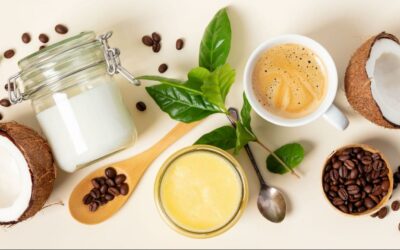Catch up on Part 1 of us breaking down this flawed, dairy-funded study, or dive right in here. After reading it, we are left with a huge question: why conduct this research?
The Beverage Hydration Index
The authors of this study wanted to create something as ubiquitous and useful as the glycemic index, but for hydration, called the Beverage Hydration Index (BHI). We previously discussed how three beverages were found to lead to greater fluid retention than water: an oral rehydration solution (ORS), whole milk, and skim milk.
The researchers thought the BHI could be valuable for “individuals for whom long-term maintenance of fluid balance is important”. They cited office workers, drivers, doctors, nurses, older patients, and incapacitated patients all as good candidates because they are often in “situations in which free access to fluids is limited, or when frequent breaks for urination are not desirable”. If you don’t have access to fluids or a restroom, it’s understandable to want to hydrate as efficiently as possible.

BHI Flaws
On its surface, the BHI seems like a good idea. However, this study tells us nothing about its applications. Based on the study’s design, it seems that the BHI may apply to people who fast throughout the night, skip breakfast, drink half a liter of water, have another drink, and recline for the next two to four hours, moving only to urinate. Even then, the BHI only comes into play two hours in, and then becomes irrelevant because people are expected to eat or drink by then. In science jargon, this study lacks external validity.
What if you were exercising in the heat for a long time, and therefore at a greater risk of dehydration due to sweating? Would milk be your best bet then, since it’s supposedly more hydrating than water? A more recent study explored this question using a milk product, so let’s check that out: In a “push-to-the-finish” cycle exercise in the heat, researchers found that “fluid consumption following exercise- and heat-induced dehydration improves high-intensity cycling time-trial performance in young well-trained cyclists. However, neither a beverage containing ultra-filtered deproteinized milk that is high in electrolytes nor a traditional carbohydrate-electrolyte sports drink further improved performance in this short push-to-the-finish type bout compared to water.” It’s unlikely that skim or whole milk would do any better.
ORS was formulated by the World Health Organization to promote rehydration following diarrhea in the absence of intravenous saline. Since milk and ORS have similar BHI rankings, can milk serve a similar function of mitigating the harmful effects of diarrhea? Ironically, lactose intolerance would cause diarrhea in many people due to lactose intolerance. Drinking more milk in effort to rehydrate will continue the cycle and put the person at further risk of dehydration. This is another example of why we shouldn’t extrapolate uses that do not have solid evidence to back them up, yet both ORS and milk are marketed to athletes as a hydration tool.

The Ultimate Findings
We previously mentioned that three beverages led to greater fluid retention than water: an oral rehydration solution (ORS), whole milk, and skim milk. Why? Is there an underlying mechanism to look at?
The authors wrote, “The calculated BHI revealed that drinks containing the highest macronutrient and electrolyte contents were the most effective at maintaining fluid balance.” They also explain why this happens: “Ingested drinks with a high energy content, whether in the form of carbohydrate, fat, protein, or alcohol, will empty from the stomach more slowly than energy-free drinks and will thus potentially reduce or delay the diuresis that follows in comparison with the ingestion of a bolus of still water.” By this logic, higher calorie beverages will be even better than milk. What about a syrup-laden, fatty, salty, coffee drink from a fast food chain? Would that be likely to outperform skim and whole milk because it has more macronutrients and electrolytes?
To sum up their results and rationale, milk digests slower than water. If expelled urine is the metric for hydration, then milk scores higher. But is that even a telling metric? This doesn’t capture where the participants stored the fluid in the body. Did they retain it within their muscles, which could support exercise performance? Was it subcutaneous, meaning just beneath their skin, perhaps making them feel puffy and look bloated?
We simply don’t know which compartment this extra fluid was stored in, which makes it hard to discern whether this fluid retention was virtuous or undesirable.
Conclusion
The proposed Beverage Hydration Index does not tell us anything valuable about hydration status for a majority of the population. It’s poor science to make sweeping recommendations based on these limited results. It’s bad enough that the dairy industry is publishing studies with such flawed methodology, but it’s even worse when the media picks it up and gives it attention, misleading the public that does not have the time or interest to dissect this study for the truth.
The bottom line is that dairy products of any kind are problematic for humans, and especially athletes trying to perform their best. However, the industry has managed to change the narrative to suit their needs. As long as they continue to publish poor science, we will continue to dissect it and shine a light on their foul play. The dairy industry should not be looked to for scientific evidence of any kind.








